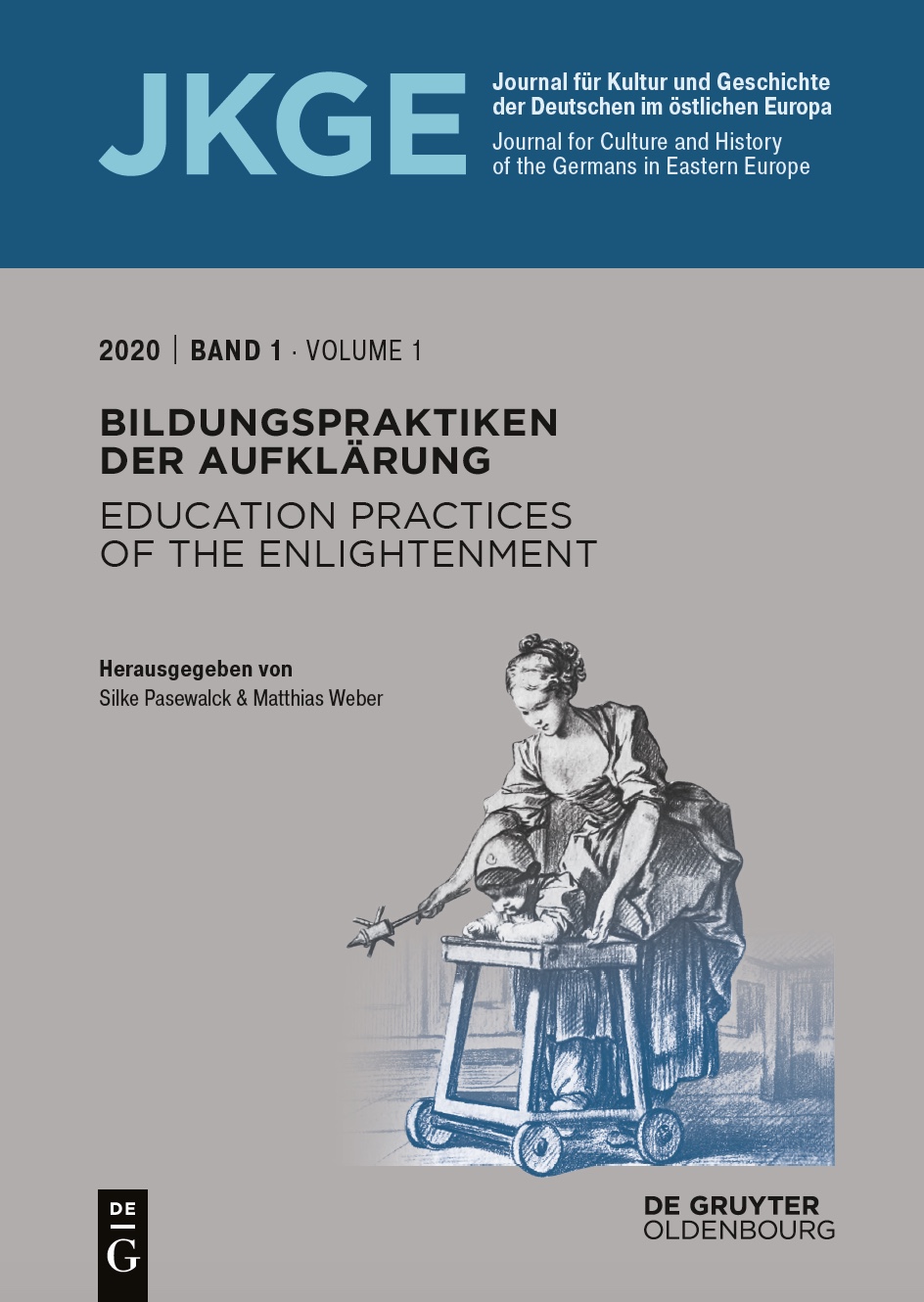Die Dichotomie der Expansion. Der Aufstieg Russlands und Danzigs Rolle als ein Knotenpunkt der Gelehrsamkeit im 18. Jahrhundert
The dichotomy of expansion. The rise of Russia and Gdansk's role as a centre of scholarship in the 18th century
Author(s): Marc BandittSubject(s): Cultural history, Political history, History of Education, 18th Century
Published by: De Gruyter Oldenbourg
Keywords: Gdańsk; 18th century; enlightenment; intersection; scholarship; Tsar Peter I.;
Summary/Abstract: For a short period in the early 18th century the city of Gdańsk held a notable position as an intersection of scholarship within the Baltic Sea region. Acting as an autonomous state, the commercial metropolis not only became one of the most populous cities in East-Central Europe in the Early Modern times, but also a significant centre for information and communication. Having escaped the ravages of the Thirty Years’ War, Gdańsk had experienced a cultural awakening during the Pre-Enlightenment era, when the city became a preferred destination for war refugees. Since the late 17th century the status of Gdańsk as an established intersection of scholarship also contributed to shifts of a geopolitical nature. In this context the rise of the Russian Empire under Peter I played a major role in the city’s emergence which, perversely, led to ambivalence. So while many paths temporarily intersected in Gdańsk, mainly because the Tsar’s residence was there in 1716; the change of power structures in North East Europe, in the long term, led to the loss of the city’s political significance and, finally, to the end of its independence.
Journal: Journal für Kultur und Geschichte der Deutschen im östlichen Europa (JKGE)
- Issue Year: 1/2020
- Issue No: 1
- Page Range: 9-28
- Page Count: 20
- Language: German

